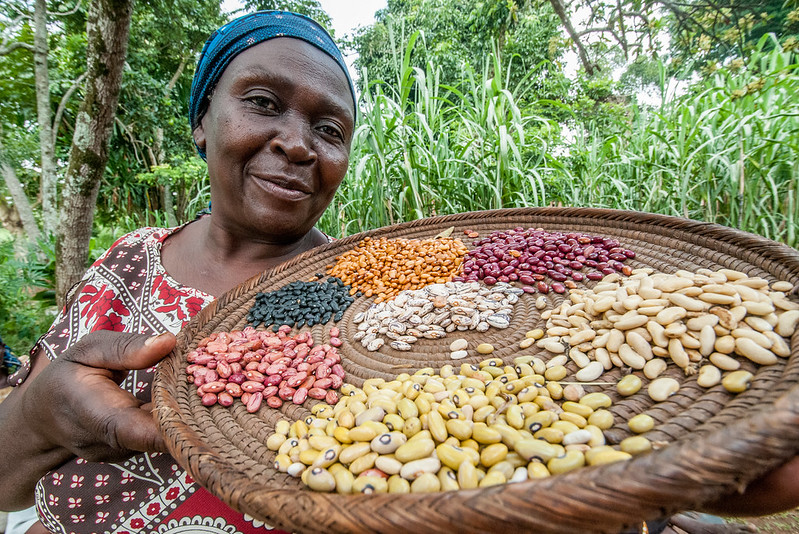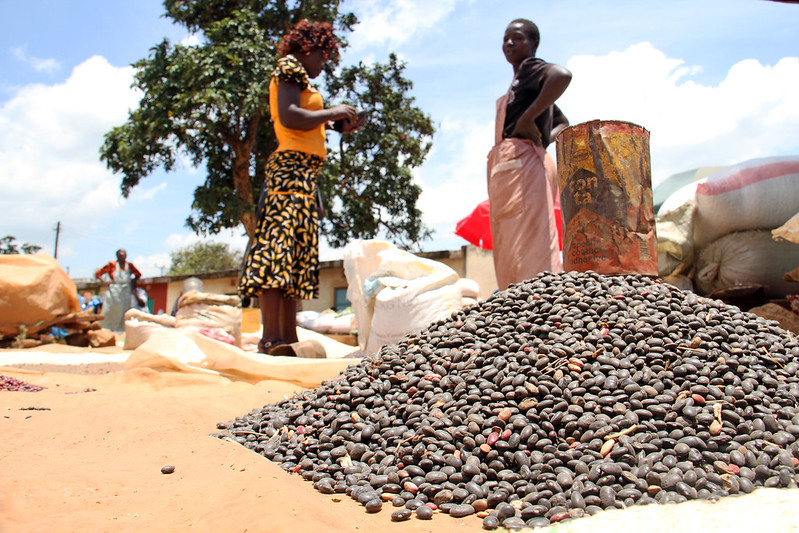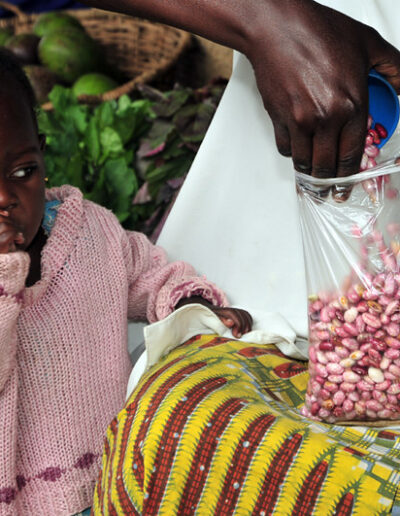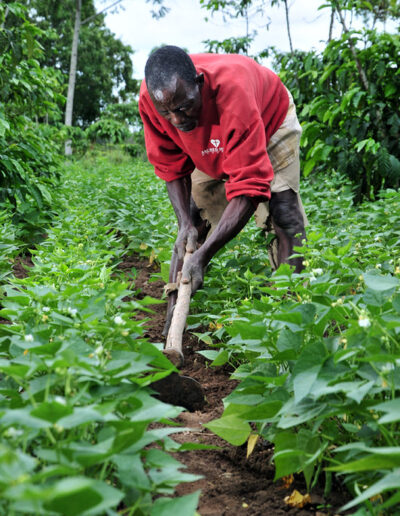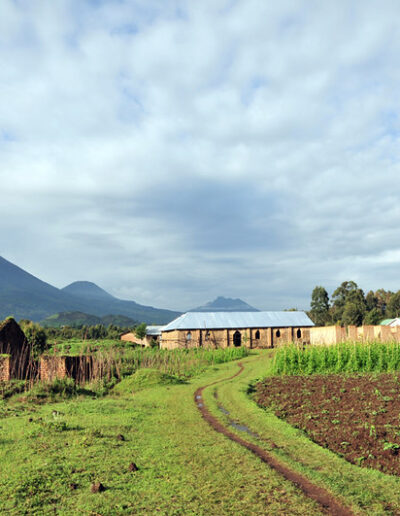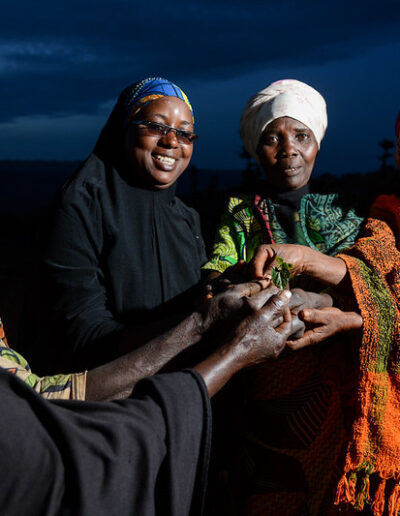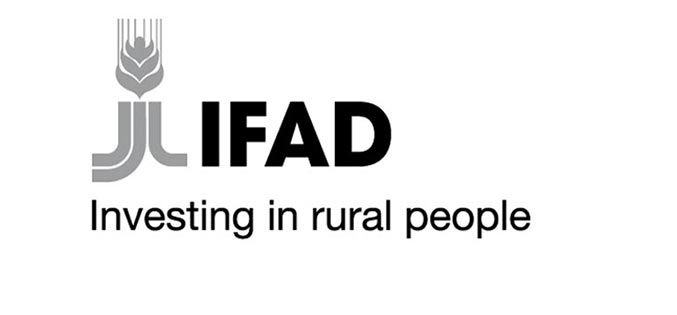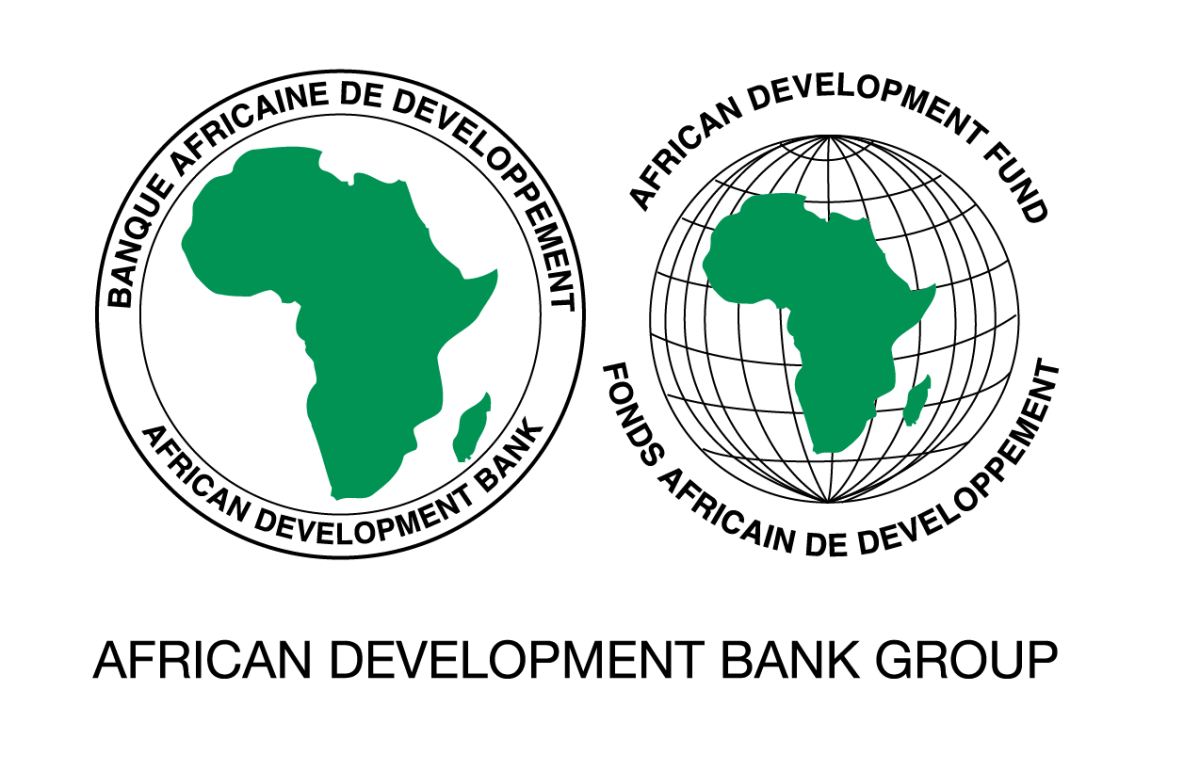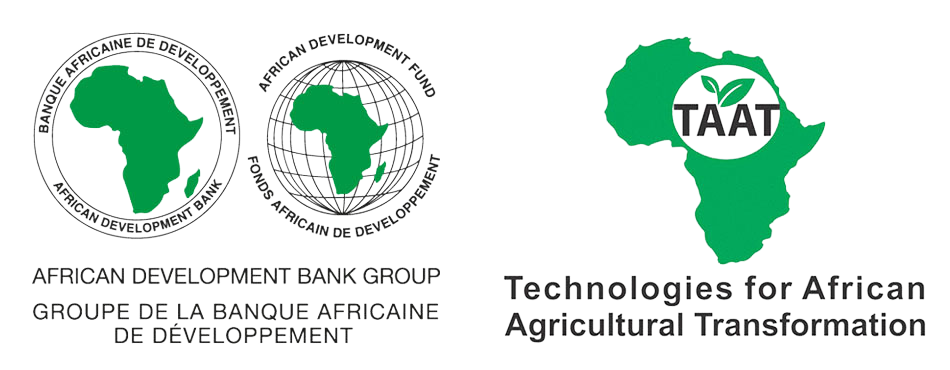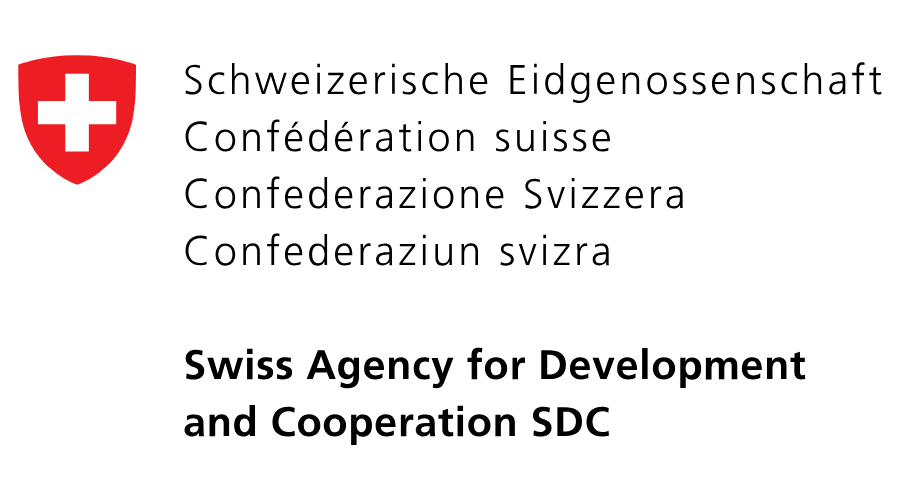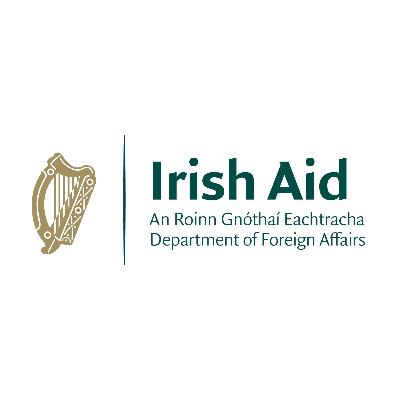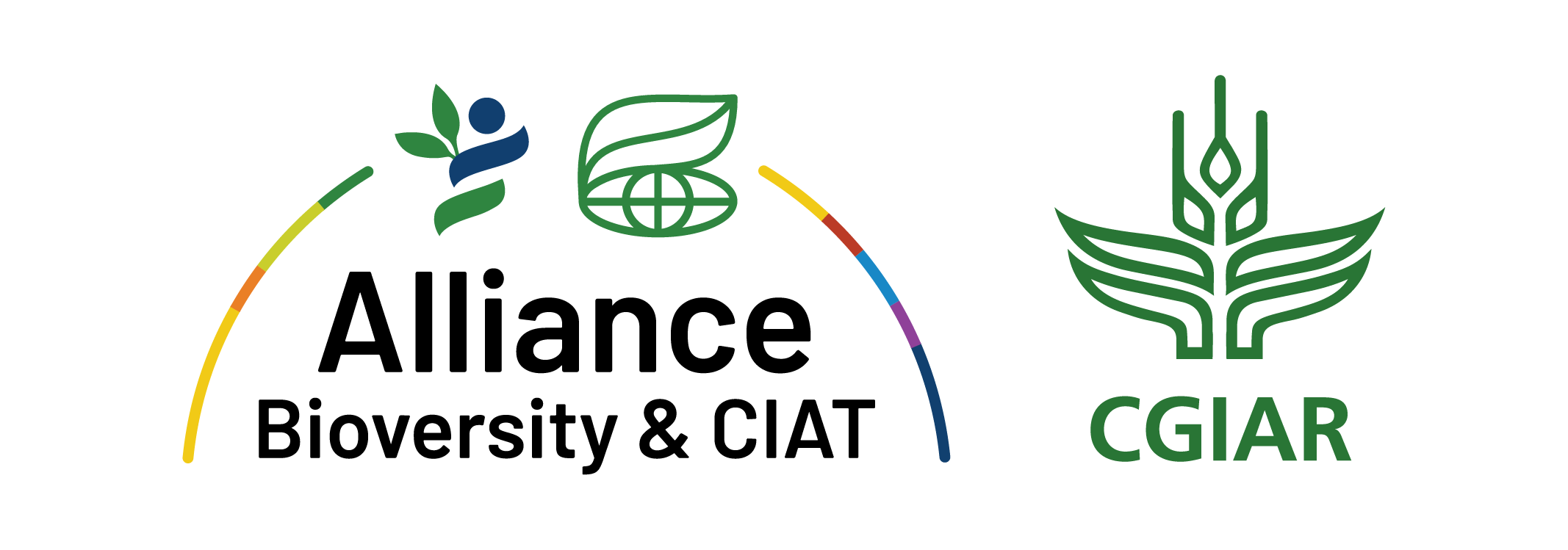About Gender and Social Inclusion
Gender is an integral part of the Pan Africa Bean Research Alliance (PABRA) project implementation. It’s integration cuts across the various PABRA thematic focus in Breeding, Nutrition, Markets, Seeds system, Integrated crop management, and Monitoring, evaluation, and learning in the bean value chain. There is an existing gender gap in agriculture; due to limited access to technology, information, credit, land, inputs by women and youth. PABRA delivers on gender outcomes through;
- Gender mainstreaming
- Strategic and transformative gender research

-
Gender mainstreaming
Gender strategy: The PABRA Gender Strategy provides a gender lens through which projects are implemented. Our mission is to promote transformative communities by breaking social norms and systemic barriers.
Capacity building: PABRA colleagues, National Agricultural Research Systems (NARS) in 32 countries, and private sector partners are trained on the value of mainstreaming gender from project design, implementation, and the monitoring and evaluation processes. In partnership with GREAT, we have trained NARS scientists on gender-responsive research and breeding. Women and youth participation have increased since the inception of the training.
Gender-responsive nutrition approach: Together with partners: NARS, Private sector, farmers we carry out nutrition promotion and awareness training through a gender lens that involves men, women, and youth. Through participatory varietal selection, cooking demonstrations, stakeholder meetings to educate the partners on health and nutrition benefits. Nutrition champions – especially men and youth are taught about the nutritional benefits of beans and recipes of healthy bean-based diets are shared with the women to complement the household diet.
Gender-responsive mechanization: Beans are generally a woman’s crop. They are actively engaged in the production and processing of beans. PABRA is working with mechanization partners to come up with solutions to reducing post-harvest losses and drudgery. Some of these technologies include threshers( reduces drudgery), solar bubble driers, and PICS bags (reduces post-harvest losses).
-
Strategic and transformative Gender research
Women and youth empowerment: Social inclusion is at the heart of PABRA’s project implementation. Increasingly women and youth are actively participating in the bean value chain. In bean business platforms and stakeholder meetings, bean opportunities are usually presented, and information shared on possible investment opportunities where men, women, and youth can tap into. PABRA and partners are also amplifying women’s voices by electing them into leadership positions in the bean value chain.
Youth have a great potential that can be tapped into to sustain agriculture now and in the future. With huge numbers of youth unemployed, PABRA is partnering with young men and women to identify employment opportunities in the bean value chain. Such opportunities include providing agricultural services – land preparation, spraying, threshing, and packaging.
Financial Inclusion: Through MasterCard Farmer Network (MFN), women are financially empowered. They are able to transact, access money digitally through mobile money from the sales of their beans, and build their credit portfolio.
Conceptualizing future farmers: From the IFAD (2019) report; the average age of a household head farmer is 50 years old. To develop useful technologies for the future farmer, we need to understand who these future farmers will be, what will be the needs.
Breaking down market barriers
Farmers face a variety of barriers that prevent them from accessing sustainable and profitable markets. PABRA addresses these barriers by:
- Conducting Market research: Before we can remove the obstacles, we need to understand them. Every country and market has its own unique challenges. Through market research, we are able to understand these challenges and develop technologies to address them. By sharing research results, key market actors can work to reduce imbalances.
- Informing farmers and bean value chain actors: Farmers and traders need information about different markets to be able to access and relate to them. We use a variety of methods to deliver the right information to smallholder farmers at the right time, including demonstration plots, exhibitions, brochures, and media promotions on radio and TV. In many countries, mobile phones and text messaging are becoming increasingly important for sharing information on bean technologies and markets with farmers. As well as sharing our own market information with farmers, we create linkages to market information service providers to ensure farmers and bean traders are kept informed about available national, regional and international market opportunities.
- Organising farmers (bean platforms): It is costly to do business with dispersed small scale farmers, which may prevent traders and buyers from directly engaging with farmers. To reduce some of these transaction costs, PABRA supports the development of bean platforms. Bean platforms are networks of stakeholders, including farmers, traders, seed producers and policymakers, brought together to remove the bottlenecks that hinder bean production and marketing, ranging from seed and variety development to consumption. Platforms put solutions in the hands of the users. They are a faster way of redressing challenges facing all actors within the bean value chain and assure farmers a market for their produce. Platform stakeholders are facilitated to deliberate on issues and bottlenecks as well as opportunities, so that they can craft their own solutions to the challenges. A number of countries, including Madagascar, Uganda, Rwanda, Zambia, Cameroon and Tanzania have established successful bean platforms to promote bean production and marketing. In Rwanda, the approach has been promoted to support technology promotion at district level in order to fast track technology uptake by farmers.
- Developing private sector partnerships: In order to create sustainable impact, PABRA supports national agricultural research systems to forge partnerships with the private sector in agricultural research and development to stimulate greater investment. The partnerships cut across the entire value chain, from breeding to markets, providing channels for farmers to access new bean varieties, as well as adding value to bean products through processing and marketing opportunities. Private sector partnerships have been established across most PABRA countries, ranging from seed businesses to grain enterprises.

